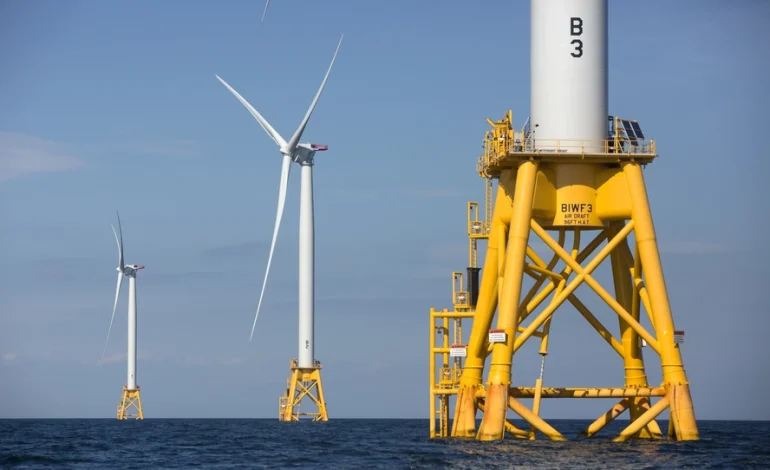Ørsted is taking the Trump administration to court to save Revolution Wind, the nearly finished offshore project off Rhode Island and Connecticut that’s supposed to power more than 350,000 homes across New England.
The Danish renewables giant filed suit Thursday in US District Court in Washington, DC, asking a judge to vacate Interior’s Aug. 22 stop-work order, which arrived with 80% of the project built—foundations in, 45 of 65 turbines installed—and first power expected next year. A parallel complaint is coming from Rhode Island and Connecticut, which say the freeze jeopardizes jobs, reliability and billions in state-backed port upgrades.
Ørsted calls the order “unlawful,” “arbitrary and capricious,” and “issued in bad faith.” The company says it has already spent or committed about $5 billion and warns cancellation could trigger $1+ billion in additional costs.
Interior’s Bureau of Ocean Energy Management said it needs to review “national security” concerns and possible interference with other ocean uses before work can proceed. Administration officials have floated scenarios ranging from radar distortion to “swarm drone” risks around turbine arrays.
Ørsted—and a chorus of critics—say that’s a pretext. The company points to a years-long federal review that cleared Revolution Wind as environmentally sound and legally compliant, including consultations in which the Defense Department said impacts on training would be “negligible and avoidable.” Connecticut Gov. Ned Lamont blasted the halt as “sudden, erratic and insane.”
The stop-work isn’t a one-off. In recent weeks the administration withdrew $679 million for wind-related infrastructure and signaled it could revoke permits for multiple East Coast projects. That follows years of presidential broadsides against wind and a pledge to block new projects except where “legally committed.”
Revolution Wind’s 704 MW would be the first large offshore wind supply for Rhode Island and Connecticut—roughly 2.5% of regional demand, with particular value in winter when gas is tight. Grid operator ISO New England warned delays could raise reliability risks. Unions say around 1,000 jobs are on the line; Connecticut has already poured $200+ million into the State Pier at New London to serve the industry. The project’s 20-year power price (≈9.8¢/kWh) was expected to beat the region’s projected average.
In its filing with partner Skyborn Renewables, Ørsted argues Interior lacked statutory authority, violated its own procedures and due process, and ignored the government’s prior approvals:
“The Stop Work Order is invalid and must be set aside.”
The company is seeking emergency relief so construction can resume while the case proceeds.
What to watch next
- Court timelines: Does the DC court grant a preliminary injunction to restart work?
- National security review: BOEM says no resumption until its review is complete—expect that rationale to be tested in court.
- Spillover effects: Developers, suppliers and financiers will read this as a signal about the US offshore wind outlook. One project’s fate could ripple through supply chains, port investments, and future auctions up and down the coast.
For now, the message from Ørsted is simple: we followed the rules, we got the permits, we built most of the project—let us finish.
With input from CNBC, Reuters, Politico, Axios, and the Associated Press.










The latest news in your social feeds
Subscribe to our social media platforms to stay tuned